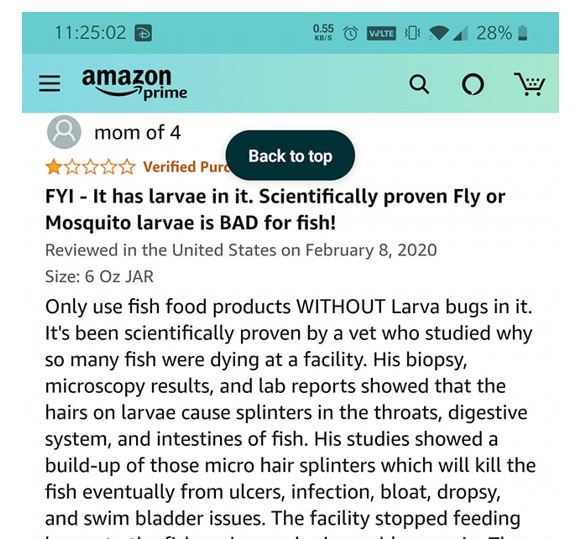| Back to Back Issues Page |
 |
|
The Goldfish Gazette, Issue #087 Myths and Mis-information March 30, 2021 |
Goldfish Care TipsA Free Monthly Resource For Goldfish Enthusiasts In This Issue There is a lot of information on the Internet about Goldfish. Deciding which is good, bad or misleading can be difficult. Myths and Mis-information
Example of Misleading InformationBecause Goldfish are so popular, many pet websites have basic care information on them. Unfortunately, much of the information is incorrect but is still copied from website to website giving it some credibility.My regular readers know how to separate myths from facts, but for those new to the hobby I have listed below the more dangerous myths I was able to find in a few minutes. Myth one - Goldfish can be over-fedThe sentence below is a direct quote from a website."Beyond voracious, goldfish simply don’t know how to stop eating and will harm themselves if presented with too much food". This is the kind of information that leads to new Goldfish owners under-feeding their fish, especially when many packets of food instruct that no more should be fed than can be eaten in two minutes or less. Goldfish should be fed between 0.5 to 2% of their body weight daily, with the lower figure more relevant for colder weather, and as high as 4% for younger fish in the peak growing season. Myth two – Make weekly partial water changesThe myth here is that a weekly 10-25% water change will be sufficient to keep water quality high. Aquarium size, fish size and numbers, filtration, feeding and plants all have an impact on how often water should be change.The only way to know for certain how often and how much water to change is by using a water test kit to measure how quickly your water quality degrades to a level harmful to your fish. Another myth to do with water changes is the amount of water to change. Some believe large water changes are harmful. They can be if the water being changed is particularly poor and the fish are not slowly introduced to the new water. I routinely make between 90-100% water changes. Myth three - Quarantine ProcedurePlacing a new arrival into a sickbay for 2-3 weeks to check if it develops any disease is sufficient before introducing them into their new environment.Not so. This method does allow enough time for bacterial and fungal diseases to appear, but parasites are the bigger problem, and healthy Goldfish can carry them without showing symptoms. Fish in quarantine should be treated for parasites whether they are showing symptoms or not. Myth four – Goldfish don’t live for very longGoldfish are a long living fish species. Pond fish should live 15+ years, aquarium fish with filtration and regular water changes 10+ years.Myth five - Black Moor aren’t a strong varietyBlack Moor are one of the more robust fancy varieties.What often happens is a Black Moor is added to an aquarium of single tailed gold fish as a color contrast. Because it can’t compete for food as well as the single tailed fish due to body shape, poor eyesight and twin tails, it slowly starves. Once its body-weight drops to a certain level, its immune system is weakened and it contracts some opportunistic disease. Mis-informationFor obviously commercial reasons, some less than truthful facts on the Internet are used to try and discredit competitors’ products.A purchaser’s review I found on Amazon recently went into some detail why a certain gel food was harmful to Goldfish because the hairs on the fly or mosquito larvae in the product caused most diseases Goldfish suffer from. The vet that produced the evidence was not named. SummaryOnly use websites that specialize in Goldfish care for information you are seeking as the majority are owned by people who have many years of practical experience.
Comments? Ideas? Feedback? I'd love to hear from you. Just reply to this e-zine and tell me what you think, or what topics you want covered. Next Month's Topic Buoyancy Issueswww.facebook.com/aboutgoldfish |
| Back to Back Issues Page |